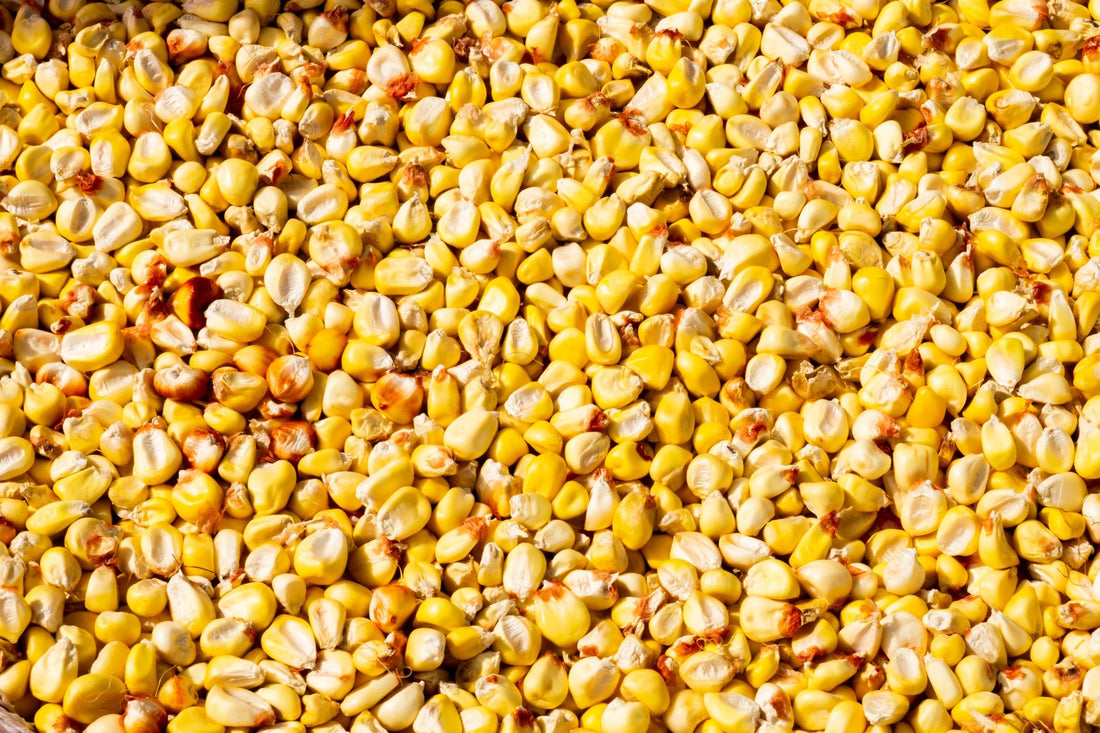Brrr, it's chilly in the coop! As the winter winds howl and the snow starts to pile up, it's time to talk about what's on the menu for our feathered friends. Just like us, chickens need a little extra fuel to keep warm in the winter. So, let's fluff up our knowledge about winter feeding for chickens, including higher-energy foods and treats that'll turn your birds into happy little cluckers in the coldest of months.
Understanding the Winter Diet Needs of Chickens
When the temperature drops, chickens have to work harder to maintain their body heat. This means they need more calories. It's like their internal furnace is burning more fuel to keep them cozy. So, what can we do? Ramp up the energy content in their diet!
High-Energy Feed: The Main Course
Switching to a higher-energy feed in winter is like giving your chickens an extra layer of thermal underwear. Look for feeds with increased fat and protein content. This doesn't mean overfeeding them; it means making every peck count with more energy-dense food.
Corn: The Perfect Poultry Snack for Cold Evenings
Cracked corn is like the chicken equivalent of a warm, cozy fireplace. Feeding your chickens a small amount of corn in the evening can help them generate and retain more body heat overnight. Remember, moderation is key – think of it as a bedtime snack, not a main meal.
Why Corn is a Winter Favorite for Chickens
Corn, in the world of chickens, is akin to a warm, snug blanket on a frosty evening. It's a high-energy treat that helps to keep their internal fires burning bright. But why is corn such a chicken winter favorite? Let's peck into the details!
The Science Behind Corn and Chicken Body Heat
- Slow Digestion, Steady Heat: Corn is a carbohydrate that digests slowly. As it breaks down during the night, it releases energy gradually. This slow energy release helps chickens maintain a stable and warm body temperature during the cold nights.
- Energy Density: Corn is high in calories. It provides that extra energy boost chickens need when the temperature outside is doing its best impression of the Arctic.
How to Feed Corn to Your Chickens in Winter
- The Evening Snack: The best time to feed corn to your chickens is in the evening, a little while before they roost for the night. This timing ensures that the energy from the corn is used for warmth during the coldest part of the day.
- Moderation is Key: Remember, corn should be a supplement to their regular diet, not a replacement. Think of it as a treat, not the main course. A small handful per chicken is plenty.
- Cracked vs. Whole Corn: Cracked corn is often easier for chickens to eat and digest. However, whole corn takes longer to digest, providing a more prolonged heat source, which can be beneficial on particularly cold nights.
Additional Tips for Feeding Corn
- Mix it Up: You can mix corn with their regular feed or give it separately as a special treat. Some chicken keepers like to create a special winter mix, combining corn with other grains and seeds for a more rounded nutritional profile.
- Watch for Overindulgence: Chickens, like us, might overeat the good stuff if given a chance. Keep an eye on their overall diet to ensure they're not filling up on corn at the expense of more nutritionally balanced feed.
- Storage and Quality: Store your corn in a cool, dry place to prevent mold. Moldy corn can be harmful to chickens, so always check the quality before feeding.
Fats: Essential but in Moderation
Adding a bit of fat to the diet can be beneficial in winter. Think of it as adding a little extra insulation. Fats can come from sources like sunflower seeds or mealworms. But remember, too much of a good thing can lead to overweight chickens, and nobody wants a chicken so chubby it can't waddle properly.
The Importance of Water: Liquid Gold in Winter
Water might not seem like part of the diet, but it's crucial, especially in winter. Chickens need constant access to water that isn't frozen. Consider heated waterers or water heater bases to keep the H2O flowing. Dehydrated chickens are unhappy chickens, and nobody wants that.
Winter Treats: Keeping Things Fun and Nutritious
Who doesn't love a good treat, especially when it's cold outside? Winter treats for chickens are not just about indulgence; they’re about adding variety and extra nutrients to their diet.
- Warm Oatmeal: A Cozy Breakfast
A warm bowl of oatmeal on a cold morning is delightful for us and our chickens. Mixed with some corn and a bit of their regular feed, it can be a nutritious and warming treat. Plus, watching chickens eat oatmeal is hilariously entertaining.
- Vegetables and Fruits: Vitamins on the Side
Winter can be sparse in fresh greenery for your birds. Supplement their diet with vegetables like cabbage, kale, or broccoli and occasional fruits like apples or berries. Hang them in the coop for an entertaining and healthy snack.
- Protein Boost: Mealworms and Grubs
Insects might be scarce in winter, so offering dried mealworms or grubs can provide a much-needed protein boost. It's like a mini-beast feast for your flock, and it's great for their feathers and overall health.
Feeding your chickens properly in winter is all about balance – boosting their energy intake while keeping things varied and nutritious. With these tips, your feathered friends will not only survive the winter; they'll thrive. So, keep those waterers unfrozen, the corn coming, and the treats varied. Your reward? A flock of happy, healthy chickens who can't wait to lay some 'eggcellent' eggs when spring comes around.
Happy winter feeding, and remember, a well-fed chicken is a happy chicken! Stay tuned for more poultry care tips and clucky adventures!

